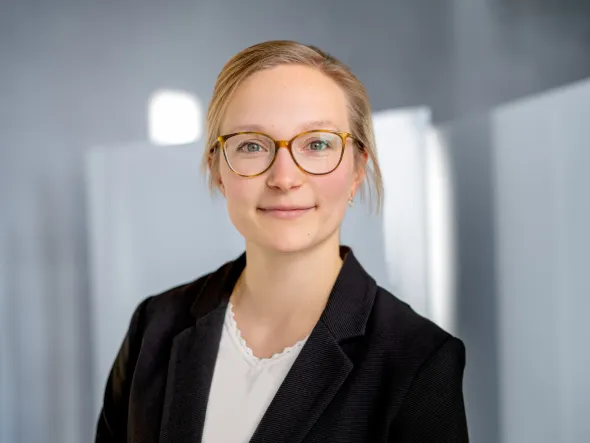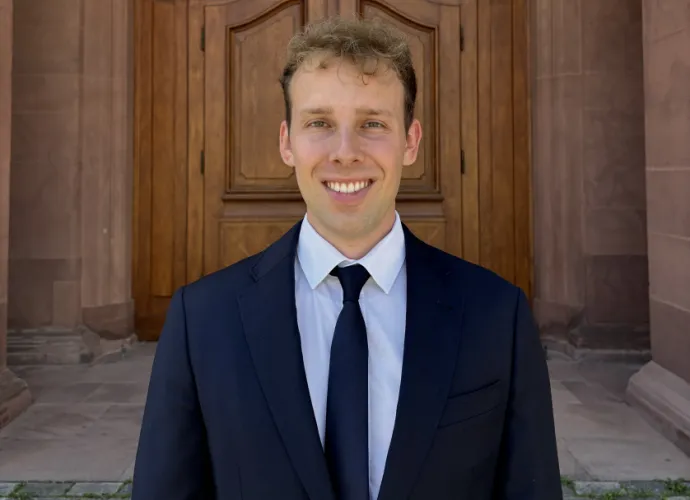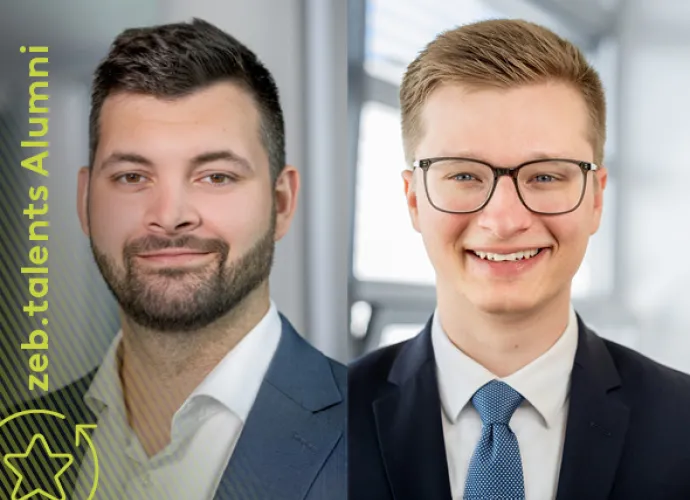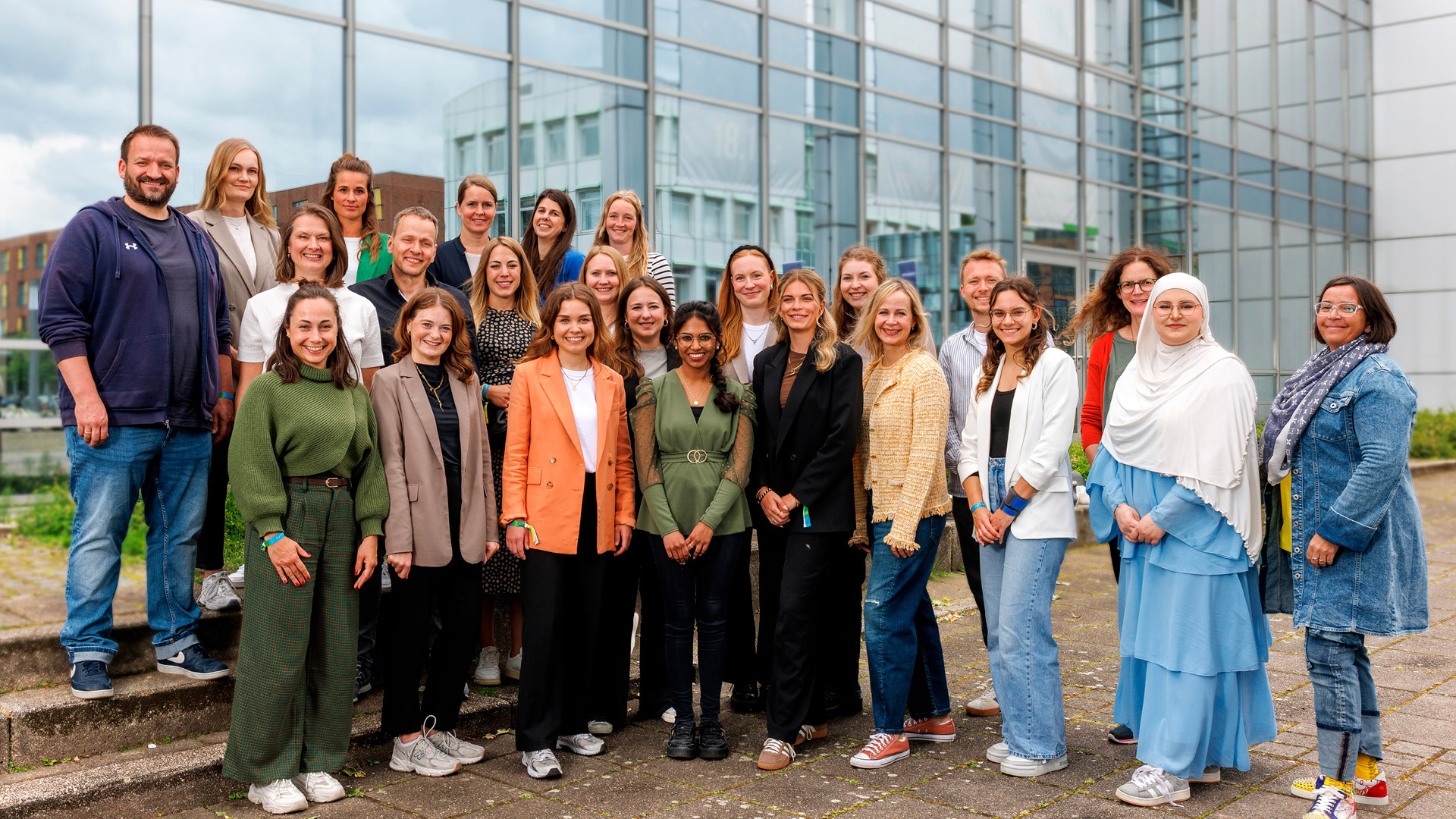From physics to consulting

Release date: 06. September 2023
Helena joined zeb after completing her PhD in physics and has been working as a software developer for about six months. In this interview, she tells us what she as a physicist finds particularly exciting about her work, what opportunities and challenges she encountered when starting out at zeb and what her day-to-day work as a developer is like.
So, you are a calculation engine developer for financial mathematical methods. What does that mean in concrete terms?
We calculation engine developers create the financial mathematical content of the zeb.control software. I am currently working on a module that uses Monte Carlo simulation to determine the risk of a bank’s loan portfolio. We use the Scala programming language to convert financial mathematical models into algorithms and work with our specialist colleagues to develop concepts that make our clients’ business requirements technically feasible.
I spend a large part of my time programming and writing unit tests in Scala. This also includes a comprehensible and traceable recalculation of the expected results of the test unit in Excel. My week is structured around daily team coordination and additional meetings to discuss our implementation concepts.
As a physicist, why did you choose to work in software development in the financial industry?
While studying physics, I was impressed early on by the potential of numerical simulations, and I therefore also dealt with this topic in my PhD thesis: using molecular dynamics simulations, I was able to predict the properties of chemically treated surfaces very accurately.
After my PhD, I no longer wanted to do research at a university, but I still wanted to work very analytically and get more deeply involved in the technical implementation of modern simulation programs. Rather than doing basic research, I now get to see the direct benefit of my work. I am in close contact with my team and occasionally with my specialist colleagues and clients, rather than working alone on a problem.
What prior knowledge and skills are helpful for (lateral) entry into software development?
My physics background is not directly applicable to the world of finance, but it helps that I was able to acquire sound mathematical skills and a first programming language (Fortran, by the way) during my studies. For my PhD thesis, small scripts were the most important tools to start simulations, evaluate them and optimize settings. Sometimes I also made small changes to existing simulation programs. This still helps me to some extent in my day-to-day work, but this kind of programming is very different from professional software development!
My studies and my PhD have given me the ability to describe complex problems in algorithms and to quickly familiarize myself with new problems. With that and the appropriate willingness to learn, the experience gap is quickly bridged.
What was your onboarding period like?
I started with the zeb.start introductory week. In addition to general introductions and training, we worked on and presented a case in a small team. This was very exciting for someone like me who was completely new to the financial industry! Even though it was challenging and my day-to-day work as a software developer differs significantly from that of many other consultants, it was an instructive introduction that gave me an understanding of the content and working methods at zeb. Plus, I was able to make cross-departmental contacts with whom I still get together over lunch.
In the first few weeks, I worked intensively with the programming language Scala, which was new to me. The familiarization process was less about programming courses and more about on-the-job training, code reviews, peer testing and detailed feedback. Because I was soon assigned my own tasks, I went through a steep learning curve.
Through daily team meetings, I was involved from the beginning in the development of the software architecture, functional design, database connectivity and user interface.
In addition, as I mentioned earlier, I was new to the banking industry, so I was able to learn the basics of bank management and then delve deeper by attending seminars and training courses.
Helenas testimonial and her career at zeb have aroused your interest? Click here to find further information about your career opportunities.






















